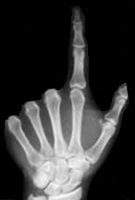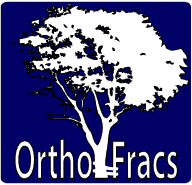Journal Club
March 2010
Nonoperative Management of Adhesive Capsulitis of the Shoulder: Oral Cortisone Application versus Intra-articular Cortisone Injections
Lorbach O, Anagnostakos K, Scherf C, Seil R, Kohn D, Pape D.
Department of Orthopedic and Trauma Surgery, Klinikum Osnabrück, Handsurgery, Osnabrück, Germany
J Shoulder Elbow Surg. 2010 Mar;19(2):172-9.
Reviewed by
Dr Nathan White
MBBS | Unaccredited Orthopaedic Registrar
Introduction
- Hypothesis
- "Both oral and intra-articular application of corticosteroid would lead to significant improvement and comparable results"
Methodology
- Study Design
- Prospective RCT
- 40 pts
- Stage II adhesive capsulitis
- Exclusion criteria
- Surgery, OA, IDDM
- Intra-articular cortisone injections Vs Oral cortisone
- All
- Physical therapy
- 4 weeks after cortisone commenced
- bd independent, twice weekly supervised for 8 weeks
- Measurements at 0, 4, 8, 12, 24, 52 weeks
- Physical therapy
- Oral cortisone
- Prednisolone
- Tapering daily dose 40/30/20/10/5mg
- 5days each
- Pantoprazole 40mg mane
- Patients
- 10 male 10 female 52 ± 10 years
- 70% dominant arm
- Mean duration of symptoms 11 months
- Prednisolone
- All
- Intra-articular injection
- 3 radiologically guided injections
- Bupivicaine (5ml, 0.5%)
- Mepivicaine (5ml, 0.5%)
- Triamcinolone (40mg)
- 0, 4, 8 weeks
- Patients
- 13 female, 7 male 50 ± 8 years
- 50% dominant arm
- Mean duration of symptoms 11 months
- 3 radiologically guided injections
- Outcome Measures
- Constant & Murley Score
- 100 point score, higher score = better function
- Pain, function, ROM (strength)
- Simple Shoulder Test
- 12 yes/no
- Function based questionnaire
- Visual analog scale
- pain / function / satisfaction
- Passive ROM
- goniometry
- Statistical analysis
- α ≥ 0.5
- Power calculation
- Post hoc
- Power of 0.84 with 20 in each group
- For external rotation only
- Analysis for difference between groups
- Paired and independent t tests
- ?No analysis of difference at T = 0
Results
- Oral cortisone & Injection
- Significant improvement in all measures
- Significant improvement at all time points
"Corticosteroids, as intra-articular injections or... oral administration... lead to significant improvement in pain and range of motion"
- Comparison
- Improvement in both groups out to one year
- Consider natural history of the condition
- Treatment aim: Earlier symptomatic relief and return to function
"The intra-articular series seems to provide faster improvement in pain reduction and patient satisfaction compared with the oral corticosteroid"
Pros of Study
- Study question
- Clinically relevant: efficacy & resource allocation
- Conclusions
- Appropriate from evidence
- Clinically useful
Cons of Study
- Study design & analysis:
- significantly flawed
- 25/7 p.o. tapered vs 3 injections over 8/52
- Treatment arms: justified but ? comparable
- No control group, small sample
- No blinding: patient or examiner
- No comparison of groups at commencement
Take home message
- Either oral or I/A corticosteroids lead to improvement
- I/A treatment appears to provide faster benefit
- Overall results are comparable at 1 year
- Consider natural history
- Patient satisfaction and CM higher for I/A at one year
- Not explained by this study
Webpage Last Modified:
30 June, 2010



